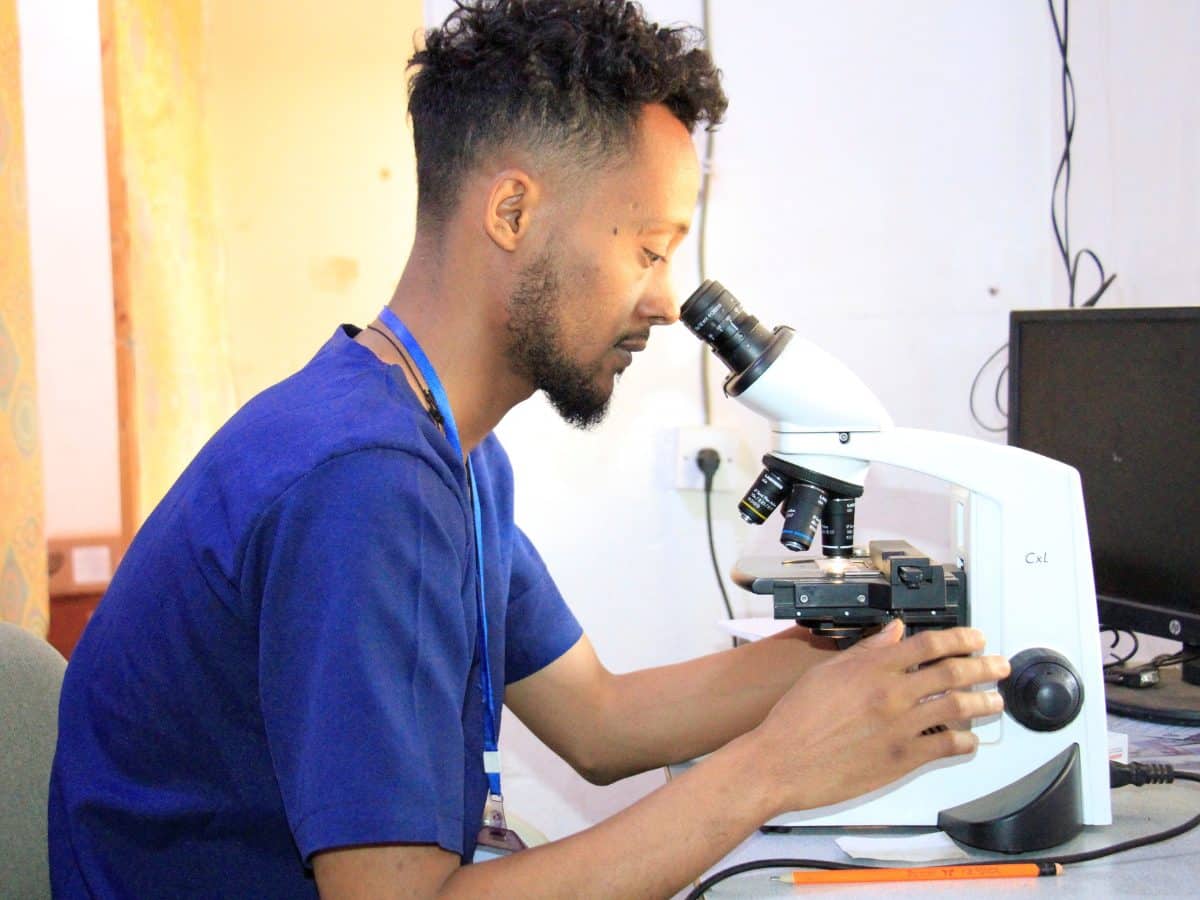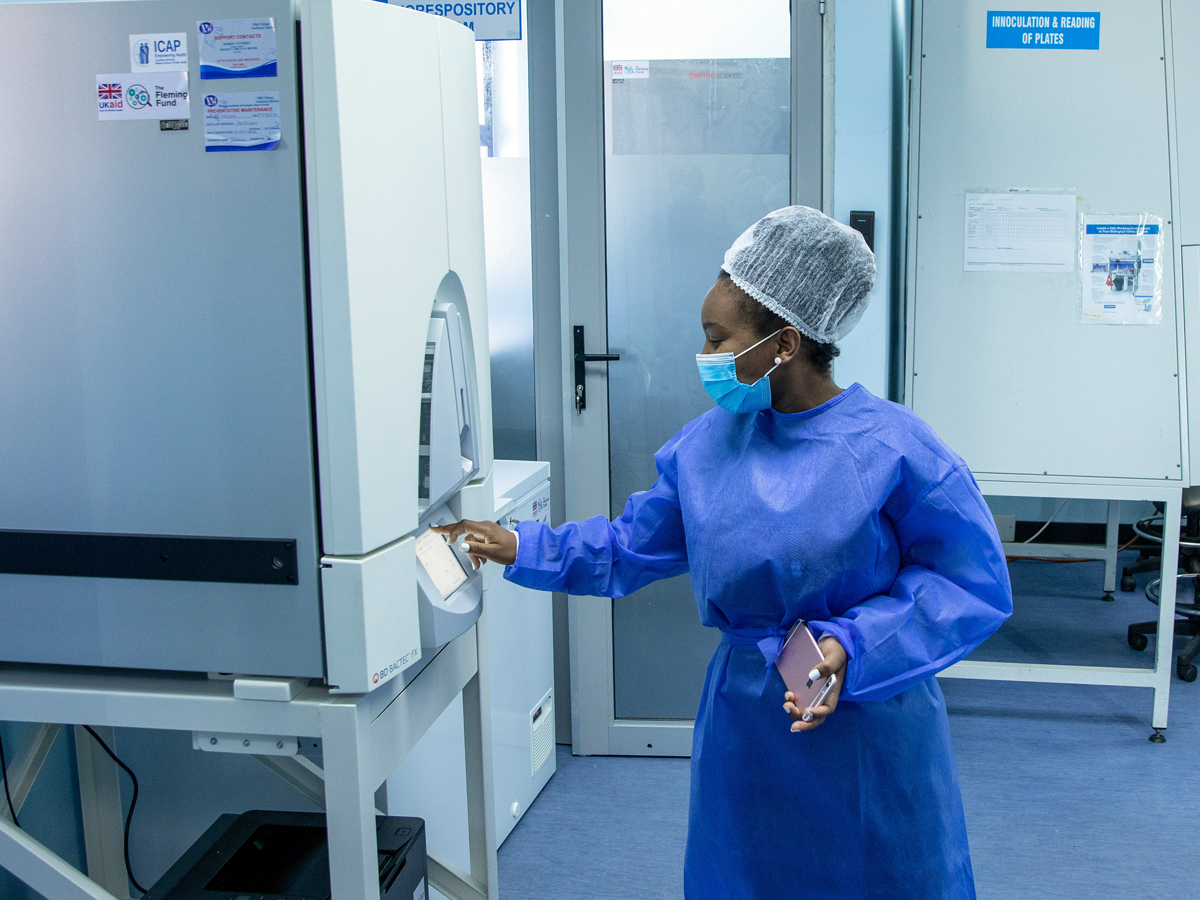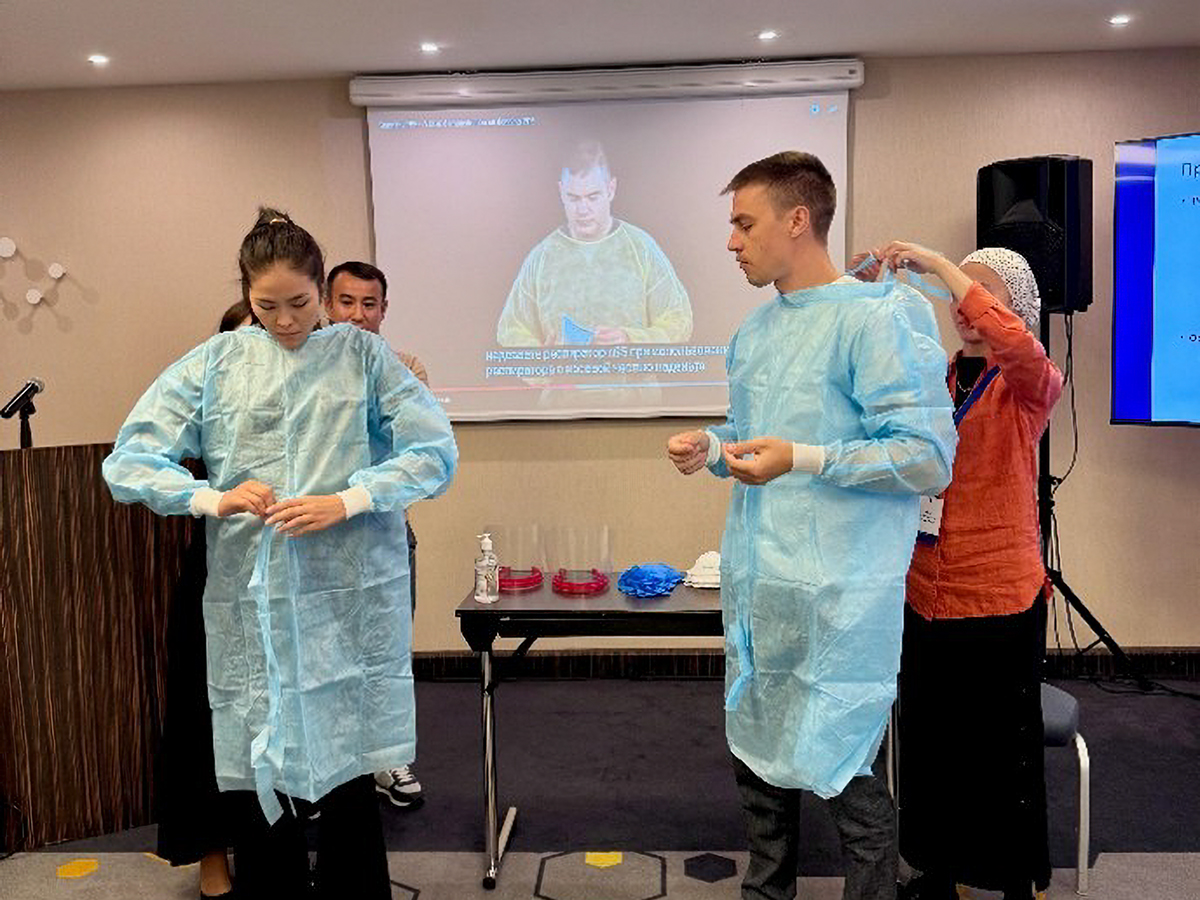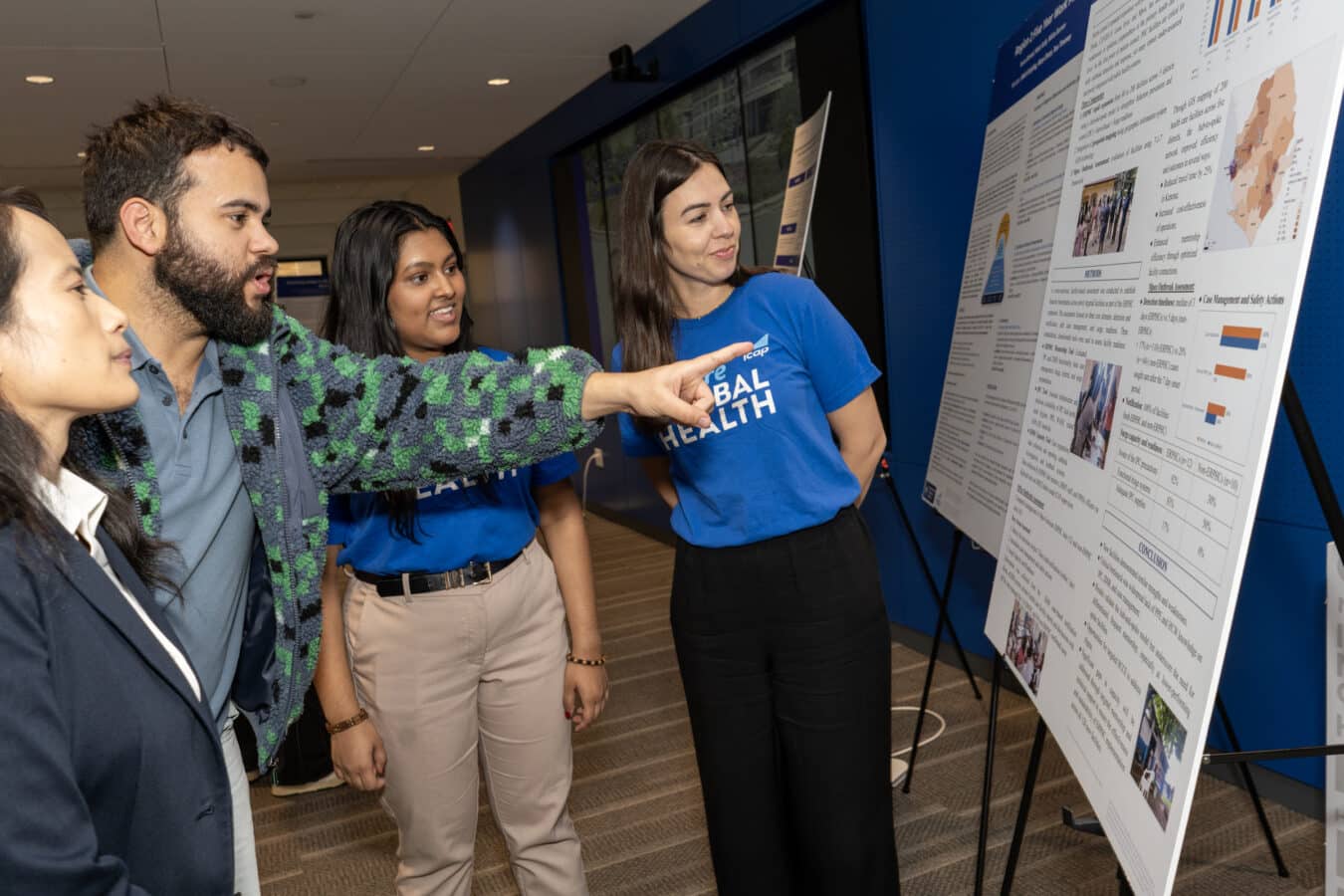For three years, there had not been a single report of malaria from Degehabur General Hospital in the Somali region of Ethiopia. The fourth largest city in the region, Degehabur was identified by the Ministry of Health as a city nearing malaria elimination. However, the disease burden in the area proved to be much higher than anticipated.
Supported by funding from the President’s Malaria Initiative through the U.S. Agency for International Development-Ethiopia, ICAP at Columbia University’s Malaria Diagnosis and Treatment Activity (MDTA) is providing Degehabur General Hospital – as well as 60 other health facilities – with essential equipment, training, and standardized protocols to improve diagnostic efforts for malaria in the Somali region.
The MDTA program first assessed critical gaps in malaria diagnosis at Degehabur Hospital in December 2022, discovering that health care workers were relying strictly on clinical symptoms to diagnose malaria, leading to frequent misdiagnoses and missed cases. The hospital also lacked microscopes, trained personnel, and standardized operating procedures, ultimately contributing to the hospital meeting fewer than half of essential malaria laboratory diagnosis standards.
Responding to these gaps, the MDTA program equipped the hospital with essential resources, including a standard microscope, clinical examination tools, comprehensive malaria diagnostic registers, job aids, quality assurance manuals, and other supplies, transforming the hospital’s capacity for malaria diagnosis and treatment.
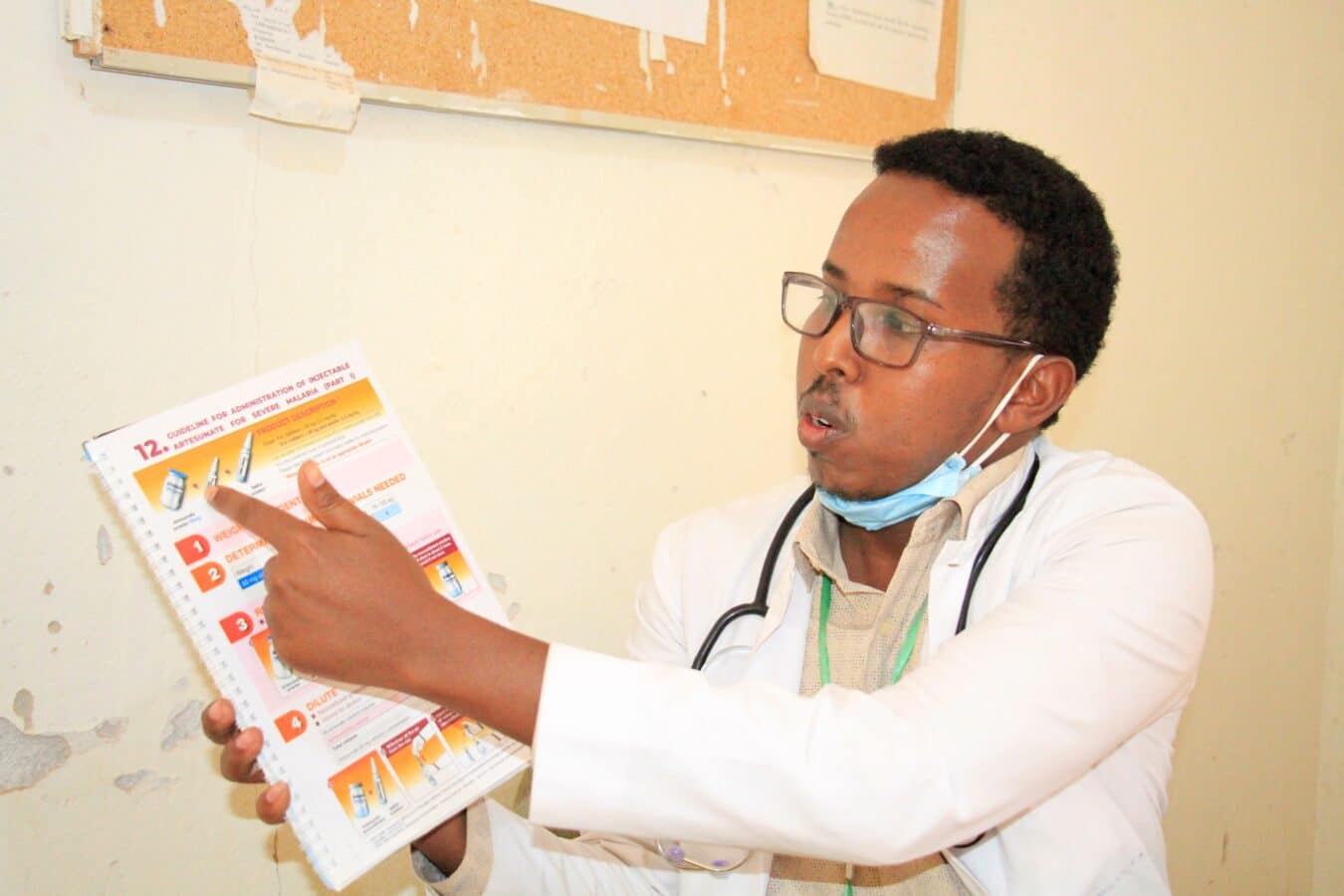
Barkhad Abdi, a physician, uses a desktop reference tool produced and distributed by ICAP for malaria case management.
In addition, ICAP conducted comprehensive training sessions, including a five-day intensive program on malaria case management for five health care workers from the outpatient department and antenatal care clinic. Another group of five laboratory personnel received comprehensive training on malaria laboratory diagnosis, including on use of equipment, followed by a three-day onsite practical mentorship training by MDTA’s regional team.
“After receiving training from ICAP and MDTA, we have transitioned entirely from clinical-based malaria diagnosis and treatment to a fully laboratory-based diagnosis and treatment approach,” said Barkhad Abdi, a physician at Degehabur Hospital. “Despite seeing clear symptoms, lab results used to come back negative in a matter of five minutes, even though proper malaria diagnosis typically requires 35-45 minutes in a laboratory setting.”
“ICAP and MDTA’s training, with both classroom and hands-on practice, made me much more competent and confident in detecting malaria cases, identifying the different species, and determining the stage of the disease,” said Takele Yalelet, a member of the laboratory staff at Degehabur Hospital. “This has, in turn, empowered physicians to deliver proper treatment and medication for each confirmed malaria case based on detailed test results.”
Fayison Chamma, medical director of Degehabur Hospital, highlighted that accurate disease diagnosis isn’t just essential for improving health outcomes, but also for developing trust between doctor and patients.
“The community’s confidence in the hospital’s ability to accurately diagnose and treat malaria cases was compromised,” said Chamma. “This negative perception stemmed from individuals receiving negative results at the hospital despite exhibiting clear symptoms of malaria.”
With the backstopping support of the MDTA program, accurate results are now the standard at Degehabur Hospital.
“To ensure the precision of our diagnostic results, we consistently send both negative and positive slides [used to examine specimens under a microscope] to the regional reference laboratory for external quality assurance,” said Yalelet. “The feedback received consistently affirms the accuracy of our malaria diagnoses, ensuring we are on the right track. During quarterly mentorship visits by the MDTA team, they also check our diagnostic results.”
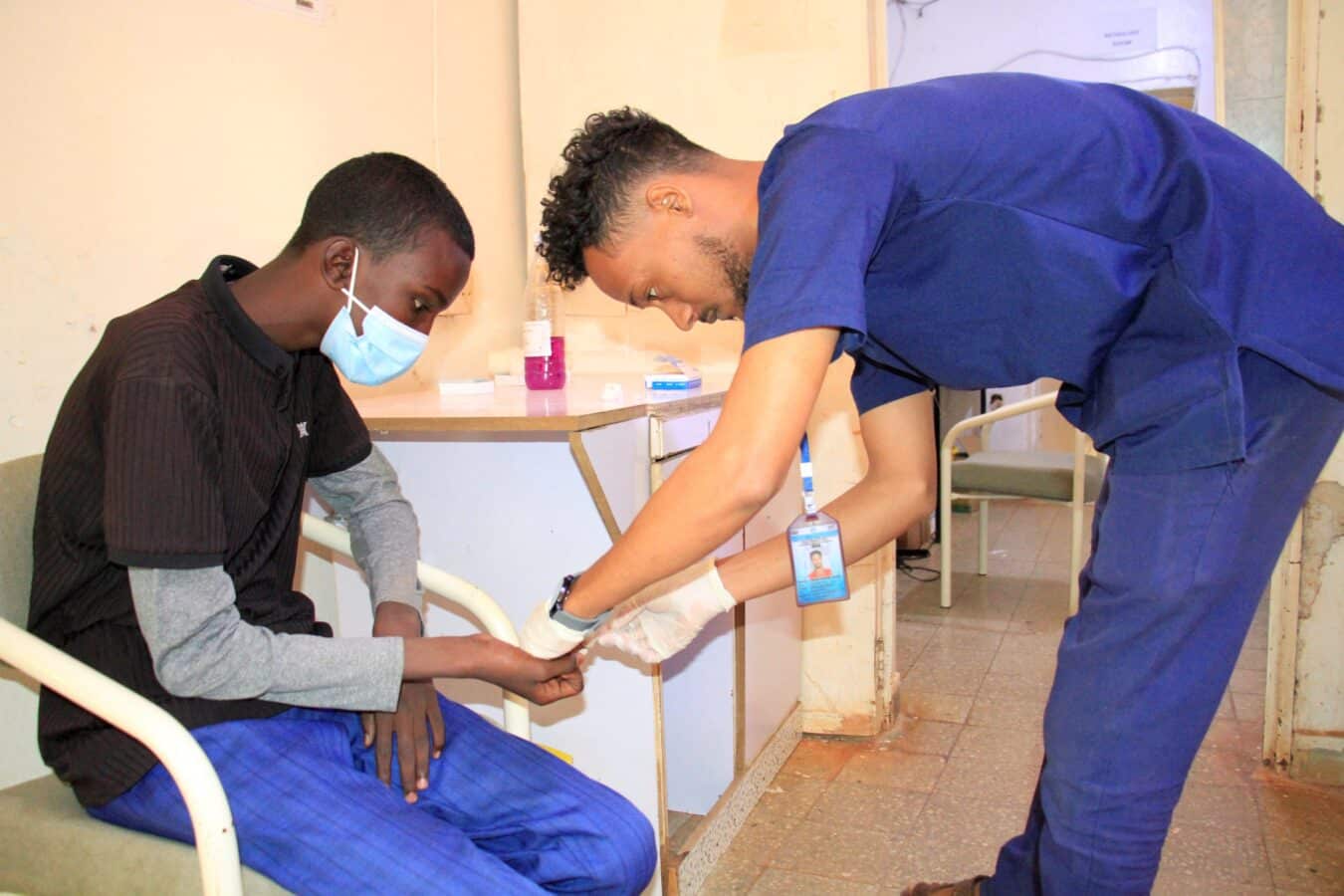
To diagnose a patient with malaria via microscopy, a small drop of their blood is taken and smeared on a microscope slide for analysis.
Following zero identified malaria cases over several years, Degehabur Hospital accurately diagnosed three cases in August 2023, the number steadily increasing each month after that. Over the next five months, the hospital diagnosed and treated a total of 51 malaria cases. At the 60 other health facilities in the region where MDTA has implemented training and improved resources, accurate malaria diagnosis is similarly increasing.
In the Somali region, malaria cases that have been treated according to the national guidelines increased from 5 percent (62/1,140) in 2023 to 89 percent (774/868) at the beginning of 2024. The proportion of severe malaria cases that have been diagnosed according to the national guidelines increased from 0 percent in 2023 to 92 percent by the beginning of 2024.
“In an impressively short timeframe, our team’s dedication and collaborative efforts with the regional health bureau have yielded remarkable results in enhancing malaria diagnosis and treatment activities in Degehabur General Hospital,” said Zenebe Melaku, MD, ICAP’s country director in Ethiopia. “ICAP is committed to ensuring uninterrupted diagnosis of malaria so that communities can seek the care they need.”
About ICAP
A major global health organization that has been improving public health in countries around the world for two decades, ICAP works to transform the health of populations through innovation, science, and global collaboration. Based at Columbia Mailman School of Public Health, ICAP has projects in more than 40 countries, working side-by-side with ministries of health and local governmental, non-governmental, academic, and community partners to confront some of the world’s greatest health challenges. Through evidence-informed programs, meaningful research, tailored technical assistance, effective training and education programs, and rigorous surveillance to measure and evaluate the impact of public health interventions, ICAP aims to realize a global vision of healthy people, empowered communities, and thriving societies. Online at icap.columbia.edu


